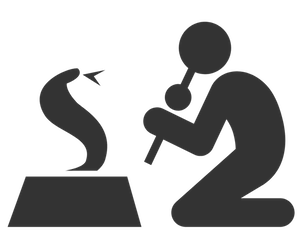 What Happens To Your Body During Sex
What Happens To Your Body During Sex
Just like you can’t build a better vocabulary without knowing the difference between a vowel and a consonant, you can’t build a better sex life unless you know the difference between the prostate and erectile tissue.
Understanding your sexual system will improve your love life because if you know what’s going on then you’ll know how to make it better. For instance, if you know that muscle contractions are the main source of orgasmic pleasure, then you can find out which muscles to exercise to make those orgasms more powerful.
If you know that the plateau stage is where most sexual activity takes place, then knowing how to stay there will help you last longer in bed. Being aware of your body can help you determine when and if you should go to the doctor and what to ask him or her when you get there.
It’ll also help you understand their answers better. Better yet, it can alleviate the embarrassment you might have about your genitals. It helps to know you’re not the only one with a curved penis, for example.
Knowledge can also heal sexual embarrassment by throwing daylight on the myths that darken your self-esteem. Are you feeling inadequate about the size of your penis because you ‘know’ the average is 6 inches? Well, it isn’t.
Knowledge has the power to educate, illuminate and enlighten. So onward! Or inward! Or outward!
The most astounding thing about men and women is that despite how differently we look, our bodies are mirror images of each other. Males and females start out as identical blobs of tissue when the sperm enters the egg. Even with ultrasound, you can’t tell the difference between male and female babies until the 15th week of pregnancy.
The same tissue that turns ovaries in women turns into testicles for men. The same tissue that forms vaginal lips in women forms scrotal sacs in bed. The same tissue that turns into a penis in men turns into a clitoris for women. In fact both the penis and clitoris have a glans and a shaft and become engorged with blood when sexually stimulated. So much for penis envy.
Although there are major differences in the way we experience sex, the journey is remarkably similar. Almost all men and women go through a four-step sexual response cycle. Five if your partner lets you roll over and sleep.
Arousal
Sex starts with seeing, thinking, touching, smelling or fantasizing about something or someone that turns you on. A new Mercedes, maybe. A guy who makes the sky long for the blue of his eyes, or a guy who makes wilted flowers stand to attention when he walks by.
Extra blood starts pumping to key areas of the body – your genitals, lips, earlobes and other parts. Men get an erection when the two large cylinders of spongy tissue in their penis fills with blood. These cylinders are covered by a tough fibrous sheath and when they fill up with blood they push against this sheath, much the way pumping air into a tire pushes against its rubber walls, creating something strong enough to take a ride on. The muscles in the scrotum contract, moving the testicles up towards your pelvis.
Plateau
In this stage, everything increasingly swells, lifts and darkens. You’re kissing, you’re touching, you’re having a ball. Pleasure fluctuates with highs and lows but never ends. It’s perfectly natural for erections to wax and wane in the plateau stage.
For instance you may lose your erection while going down on a guy even though you love doing it. No worries. All it means is giving oral sex doesn’t keep you hard. You’ll get it back.
The plateau stage is where most of the manual, oral, and penetrative sex happens. Most people want to establish residency here because it feels too good to leave.
Orgasm
As you advance from the plateau stage the pleasure peaks and then you start gasping toward ejaculatory inevitability– the point where nothing is going to stop your orgasm – – not even your mom walking in on you.
Here’s what happens: everything starts to contract. Your testicles ascend until they press against the wall of the pelvis. The prostate, seminal vesicles and vas deferens squeeze themselves silly, pouring their sperm and seminal fluid like bartenders who can’t keep up with the orders. The head of the penis becomes Deep Purple while the shaft increasingly stiffens. Breathing, blood pressure and heartbeat increase as the total body response to ejaculation takes over.
Involuntary spasms in the legs, feet, toes, stomach, arms and back can take over. The pelvic muscles go through a series of rhythmic contractions, ejaculating semen through the urethra as a series of spurts. And that, in a nutshell, is how every other thought that men have during the day ends at night.
While men go through a refractory period. Women don’t. Women can almost immediately have a second or third or more orgasm, one after the other.
Resolution
You know how everything contracts during orgasm? The opposite happens during the resolution phase. It’s as if your body got shot to the moon and now it’s gravity’s turn to teach you a lesson.
The blood flows out of the penis and the scrotum descends. Pulse, breathing and blood pressure rates return to normal. As I said earlier women can have another go at sex right away. Men usually can’t as they go through a refractory period in which they can’t get erect.
For some it’s a minute or two; for others a day or two and for most, somewhere in between. By the way just because women can have sex right away doesn’t mean they want to as many find their parts become too sensitive.
At any rate, the tension released by orgasm feels exquisite. That’s why the first letter in orgasm should be spelled ‘Ohhh’.
Men tend to become somewhat catatonic after orgasm. They get drained of glycogen, a vital source for energy.







 Prostate Massager Reviews From Top Sex Bloggers
Prostate Massager Reviews From Top Sex Bloggers 
 Other Great Options For Beginners
Other Great Options For Beginners
 The Misery Of Waiting For Your HIV Results
The Misery Of Waiting For Your HIV Results
 3 Words That Will Instantly Improve Your Body Image
3 Words That Will Instantly Improve Your Body Image